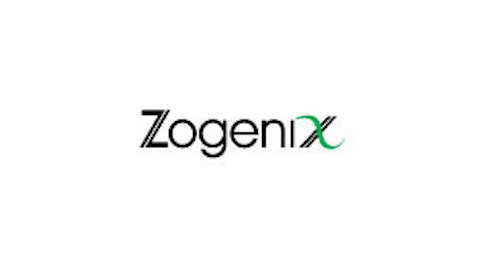When considering any stock for your portfolio, don’t be swayed by just the positives. Examine its pros and cons, and decide whether it’s possible that the upside outweighs its risks. Let’s take a look at Vical Incorporated (NASDAQ:VICL) today, and see why you might want to buy, sell, or hold it.
Founded in 1987 and based in San Diego, Calif., Vical is a biotechnology concern with a market capitalization near $280 million, meaning it’s a relatively small company. It’s focused on “vaccines and gene therapies, and delivering on the promise of novel preventive and therapeutic alternatives for serious and life-threatening diseases.”

Buy
One reason to consider buying Vical is its business. With the world’s population growing, getting older, and living longer, demand for health care products and services is likely to remain in demand. Vical’s focus on infectious diseases and cancer therapies, among other things, is positioned to serve it well.
Another reason to like Vical is its small size. It’s true that small-cap companies can be more volatile than their blue-chip counterparts, but they can also grow more briskly, and have more room to grow — assuming they execute smart strategies well. The company recently reported quarterly earnings with a smaller-than-expected loss.
One factor that can help a small biotech company become a bigger one is actually having products approved by regulatory authorities and on the market. Vical has ONCEPT approved in the U.S. and Apex-IHN approved in Canada. They treat, respectively, dogs with oral melanoma and farm-raised salmon vulnerable to an infectious necrosis virus. (Don’t laugh — pet owners take their companions’ health seriously, and salmon is a valuable food “crop.”)
Another critical factor for biotech companies is their pipeline. Vical has a handful of formulas in trials, several of which are nearing the end of the process, in phase 3 proceedings. These include Transvax, protecting against infection following stem-cell transplants; Allovectin, treating metastatic melanoma; and Collategene, aiming to increase the growth of blood vessels. Allovectin is not yet approved, but if it wins approval, Vical is likely to pursue approvals for other indications as well. And the melanoma market is a big one, with hundreds of millions of dollars in revenue possible.
Sell
While small caps do have lots of room to grow, many of them don’t do so. Vical Pharmaceuticals’ stock price, recently around $3.30 per share, is firmly in penny-stock territory, where extra-risky companies abound and many fortunes have been lost. It’s not a guaranteed sign of disaster, but it’s a red flag to keep in mind.
Another reason to stay away from Vical — and other biotech companies — is that most of us know very little about biotechnology and related fields. Thus, it can be especially hard for us to discern which companies are best poised for success, and what the risks are for each. For example, Vical’s Allovectin is expected to be a costly drug, like Dendreon Corporation (NASDAQ:DNDN)‘s prostate cancer drug Provenge. Costliness adds complexity to an investor’s calculations, as it’s less clear whether consumers and insurers will pony up for the treatment. Dendreon has risen lately, partly on expectations of good news from Europe, but it also has its detractors.
It can make a lot of sense for many investors to just steer clear of the whole field, or to invest in a bunch of biotech companies at once, via an ETF. The iShares NASDAQ Biotechnology Index (ETF) (NASDAQ:IBB), for example, can instantly have you invested in more than 100 companies, such as Ariad Pharmaceuticals, Inc. (NASDAQ:ARIA), which has received FDA approval for its leukemia drug ponatinib, now known as Iclusig. Its bone-tumor drug ridaforolimus was rejected in Europe, but it might still prove effective against other cancers. The company has been spending heavily on research and development, and it needs some more success from its pipeline, as well as a successful launch of Iclusig. Ariad reports its latest earnings today, with investors eager to see how optimistic management is about 2013 revenue.




